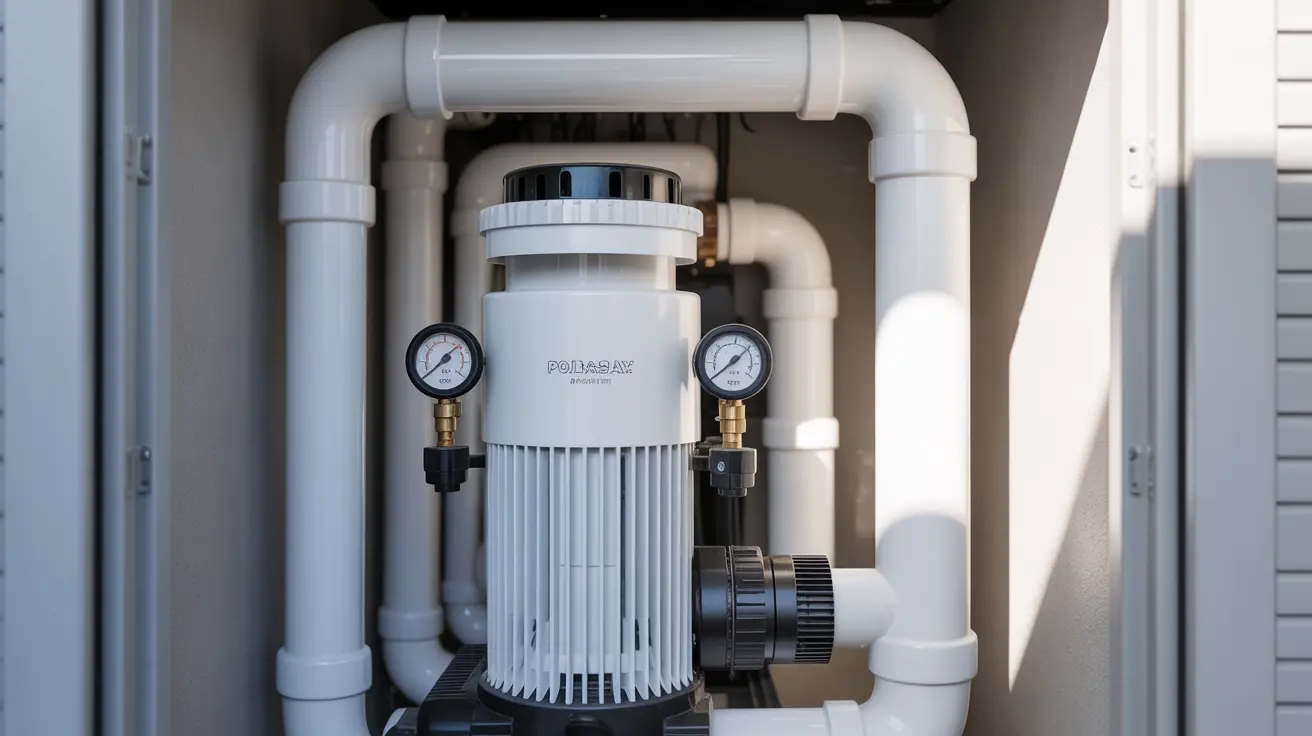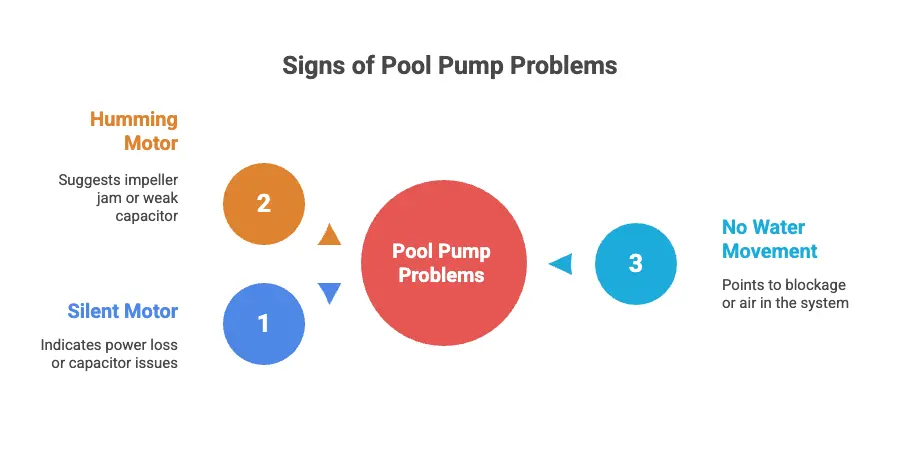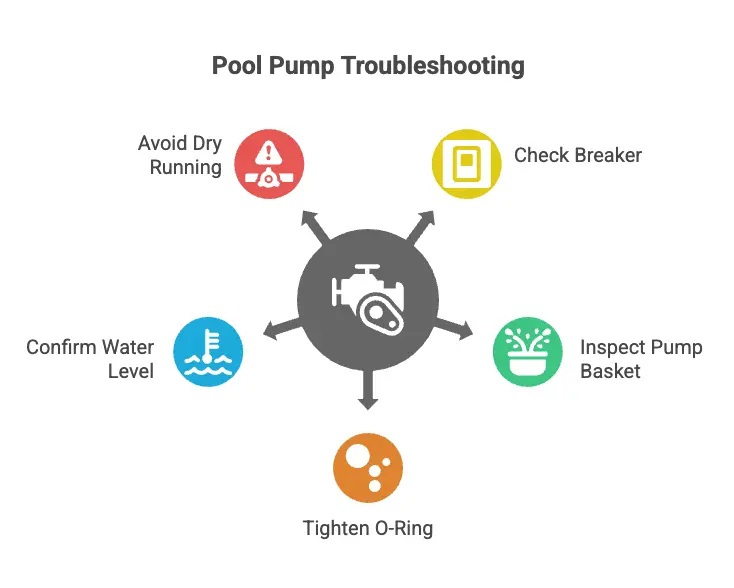Pool Pump Troubleshooting Guide: What to Do When Your Pump Suddenly Stops in Birmingham, AL


When your pool pump suddenly stops working, it feels like your entire pool season is at risk. As the heart of your pool system, the pump keeps your water flowing, clean, and safe. So when it fails, you’re left with stagnant water, frustration—and questions. This guide from Leak Rescue, Birmingham’s local experts in pool leak detection and repair, is your must-read resource for pool pump troubleshooting. We'll walk you through the top causes, how to spot issues, and when to call for professional help with industry-leading Leaktronics tools.
Read on to learn how to troubleshoot your pool pump, quickly spot the warning signs, and get your system back to full power—because fast fixes and clear water mean more good days by the pool.
Why Do Pumps Suddenly Fail? (The Basics Every Pool Owner Should Know)
A pump can quit without warning due to many causes—ranging from electrical issues to clogs or overheating. The sudden stillness often points to a break in the power source, a tripped breaker, a blown capacitor, or debris blocking the impeller.
For Birmingham pool owners, hot southern summers can also cause the pump motor to overheat. Remember, the pool pump is a complex device. Understanding its main parts—the impeller, motor shaft, pump basket, and pump lid—is the first step to troubleshooting.
What Are the First Three Signs Your Pool Pump Has a Problem?
Keep an eye (and ear) out for these:
- Silent motor: No noise at all often means loss of power, a tripped breaker, or a faulty capacitor.
- Humming or buzzing: A humming pool pump that doesn’t turn points to a jammed impeller or a weak start capacitor.
- No water movement: If your pump is running, but the pool water stays still, there’s likely a blockage or air in the system.
Recognizing these 3 signs your pool pump is failing is crucial to quick action.

Is Your Pump Sucking in Air? Quick Checks for Pool Owners
One of the most common pool pump problems is when the pump is sucking in air instead of water. Air leaks often appear around the pump lid, pump lid o-ring, or in the suction side fittings.
Check your pump lid for cracks, loose fittings, or a worn o-ring. Ensure the water level in your pool is high enough to prevent air from being drawn into the system. If you spot bubbling in the pump basket (instead of steady water), that’s a clear signal you need to troubleshoot air leaks.
Debris, Pump Basket, and Impeller: Are They Clogged?
A clogged pump basket or impeller can stop your pump fast. Leaves, hair, or dirt infiltrate the pump housing and prevent the impeller—which spins on the motor shaft—from moving freely.
To check, turn off the power, remove the pump lid, and inspect the pump basket and impeller for any buildup. Keeping these parts clean can prevent many common pool pump problems.
Is Your Pump Leaking? Here’s What to Look For
Leaks around the pool pump often show up as puddles near the pump body or pump housing. Leaking can be caused by a loose lid, a worn pump lid o-ring, or faulty internal seals.
Leaks not only waste water but also introduce air into the system, making the pump to lose prime and run dry—eventually risking total pump failure. Addressing leaks early is key to pump health and water savings.
The Role of the Capacitor in Pool Pump Problems
A failed capacitor is a top offender in sudden pump failure. The capacitor helps the pump’s motor start and run smoothly. If you hear a buzzing or humming, but the pump doesn’t turn, your capacitor could be shot.
Reset the breaker and attempt to restart. If the pump still won’t start, a capacitor replacement may be needed, which is best left to professionals due to electrical safety risks.
Pump Motor and Shaft: Diagnosing Major Trouble
The pump motor can seize if it runs dry, overheats, or is over seven years old. Listen for grinding, squealing, or electrical smells—these point to motor shaft or bearing failure.
If the pump doesn’t turn or makes metallic noises, the motor or impeller may be jammed. Shut off power immediately to prevent further damage and contact a pool repair pro for next steps.
Why Proper Water Flow Matters for Your Swimming Pool
A functioning pool pump ensures consistent water flow—vital for circulation, heating, and clean pool water. A sudden lack of flow means debris, bacteria, and algae can quickly multiply. In Birmingham’s hot, humid summers, returning your pool to full water movement ASAP is vital to keep your pool clear and safe.
How Can Leak Detection Help with Pool Pump Troubleshooting?
Sometimes, a pump that can’t maintain prime or keeps losing flow is a symptom of an undetected leak in the system. Leak Rescue uses Leaktronics’ industry leading leak detection equipment to locate hidden leaks in pipes, fittings, or underground lines—fixing both leaks and pump operation in a single service call.
Troubleshooting Tips: What to Try Before Calling for Repair
- Always check your breaker and power source first.
- Inspect your pump basket and impeller for blockages.
- Tighten or replace the pump lid o-ring if needed.
- Confirm your water level is adequate to maintain suction.
- Never run your pump dry or with a low water level—it can cause irreparable damage.
Still stuck? Leak Rescue is Birmingham’s go-to for fast pool pump troubleshooting and repair.

Why Leak Rescue is Birmingham’s Trusted Pool Pump and Leak Detection Team
- Local expertise: We understand Alabama’s heat and debris challenges.
- Advanced diagnostics: We use Leaktronics equipment for efficient troubleshooting.
- From clogged pump impellers to sudden pump failure, we resolve issues quickly.
- Honest advice: If you need a new pump or a quick repair, we’ll guide you clearly.
Key Takeaways: Pool Pump Problems Solved
- Swimming pool pumps can stop suddenly due to electrical issues, debris, clogs, or leaks.
- Common culprits: tripped breaker, failed capacitor, clogged impeller, or low water level.
- Regularly inspect your pump lid, basket, and impeller for issues—especially after storms or lots of pool usage.
- Air leaks and water leaks reduce pump efficiency and can lead to complete pump failure.
- Leak Rescue in Birmingham, AL uses Leaktronics technology for accurate pool equipment diagnostics and repairs—saving you time and stress.
- At the first sign of a problem, act fast to keep your pool safe, clear, and fun all summer.
When your pool pump fails out of the blue, don’t panic—turn to Birmingham’s local experts at Leak Rescue for the know-how and rapid service to get your swimming pool back on track!
Discover More Blog Posts
Explore our collection of informative and engaging blog posts.
Ready for a Leak-Free Pool Experience?
Contact Leak Rescue today for professional and reliable pool care services. Whether it’s detection, repair, or renovations, we ensure your pool remains a source of joy and relaxation.


.webp)
